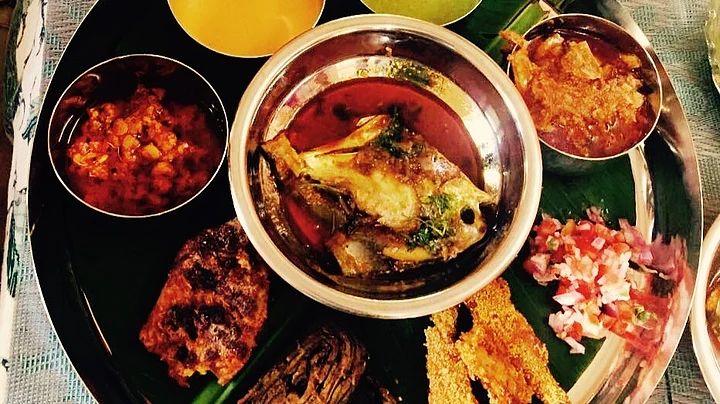There is little that can surprise a snooty Bengali when it comes to sampling non-vegetarian food from other regions of India. Avid foodies that we are, we believe we know exactly what to expect on the platter, and often vociferously proclaim the delights of our own kitchen as the best among equals.
So imagine my surprise when I dug into my first Pathare Prabhu (PP) meal, and came close - very close - to turning against my ilk.
The PPs are a tiny Maharashtrian Hindu community with a global population of roughly around 60,000. They are one of the original settlers of Bombay – now Mumbai – migrating from Gujarat and Rajasthan in the 13th century. Affluent and progressive, the PPs have in fact built some of the iconic Mumbai landmarks like the Bhau-cha-dhakka (ferry wharf) and Mahalakshmi Temple. Their elevated social status and a streak of indulgence also ensured a certain dissociation from other local communities - giving way to, among other things, a unique cuisine.
“We don’t do cheap,” laughs Shreekant Vijaykar, who with his wife Sunetra, arranges a PP pop-up meal frequently in Mumbai. “The PPs eat only the most expensive fish like ghol (Atlantic goliath grouper), pomfret and prawns, and in meats only mutton. Never chicken – because it’s affordable!”
I see what he means once the dishes start rolling in. Plated on cut banana leaves (which adds its own flavour to the steaming food), there is a plethora of seafood and meat dishes. And it is nothing like anything I have ever tasted.
The regular alu wadi (fried colocasia leaf rolls) spun on its head with mutton kheema (minced) stuffing; pomfret-prawn bhujane – a rare piscine combo cooked in a spicy garlic-based gravy; kolambiche kalwan which makes your eyes go wide with its dual flavour of prawn and coriander-coconut milk gravy; the spicy shrimp lonache (pickle) marinated in garlic, chillies, mustard and other spices; rich with masala with a twinge of sweetness that’s the saranga solache - pomfret stuffed with curried onion and shallow fried; the crunchy-on-the-outside and buttery-soft-inside kela poli (banana flat bread) with its perfectly balanced sweet stuffing of Rajeli kela (red banana) - I am nothing short of overwhelmed.
Rich yet full of subtle flavours, this cuisine leaves you wanting more.
It’s exquisite food. The PPs are a very closed community but their women are famed for their mastery in the kitchen. Serving food fresh is very important for them – they actually start cooking when you sit down to eat. Delicacies like the khatkhata and pineapple sambar (the staple South Indian lentil dish gets a pineappley twist) are incomparable.Nilesh Limaye, Celebrity Chef
Unlike other Maharastrian cuisines, PPs don’t use too much coconut or peanuts. They also eat a lot of seafood and meat – even during festivals. Take their kheema karanjis (minced mutton patties) – they put mutton where others put a stuffing of coconut! It’s mind-blowing food.Kalyan Karmakar, Food Writer
What has also kept the cuisine a rather closed secret is the absence of recipe books and non-availability of PP dishes in restaurants.
“There’s only one recipe book, Laxmibai Dhurandar’s Grihini Mitra, written in Marathi around 1910. The recipes come with old-fashioned measures that are difficult to translate. What we cook are basically recipes passed down the generations and most dishes require a lot of effort,” explains Sunetra, letting me inhale the tantalising flavours of the PP sambar masala - itself made of around 15 ingredients.
The only downside for me is the rich spice (not the chili heat mind you) quotient of the cuisine, which even by Indian standards is not easy to carry off – especially since your inner glutton tends to get to work, thanks to the fabulous taste.
But, would I eat it again? Every bloody time.
(At The Quint, we question everything. Play an active role in shaping our journalism by becoming a member today.)
